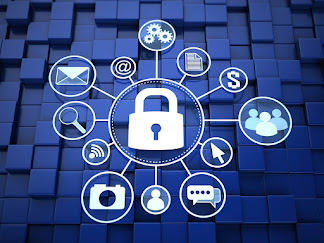HOW DOES ANTIVIRUS SOFTWARE WORKS AND MAKE MONEY?
We all understand the Antivirus Software business model: you pay a license (or a monthly fee) and you have the right to use a program. And we also understand that when a software or online service is free, then the company that has made it earns income in another way, taking advantage of things like our data. Google and Facebook are the kings in this.
Does it translate the same way with antivirus? In the case of paid antivirus, yes, because you simply pay a subscription or a license to be able to use them on your Windows computer. But what about the antivirus that are free? How do they get the money they need to keep running?The "freemium" model to
take advantage of free attention
One of the formulas that free antivirus uses is
precisely to amass a good community of users and take advantage of it to
promote a series of optional services that cost money. It is enough that a
certain part of that community agrees to pay and we already have a business
that sustains itself: in October Avast was valued at two billion dollars and
revenues of 300 million dollars were forecast for 2015 (40% more than last
year).
Those responsible for Avast
Antivirus describe it like this on their official website: they have more than
230 million users who use the free database, and who are receiving information
on specialized payment plans with improvements for both individuals and
companies. Paying users are those who hold “payroll, rent, costs of developing
and analyzing new threats that arrive daily and support for all users.”
However, that has not made Avast
have a controversial episode. Four years ago the company had to suspend the
alliance with a third-party company that was in charge of its technical
support, as suspicions arose that such support was misleading users into paying
for help they did not need. Fortunately the problem ended there and Avast was
not directly responsible.
Bitdefender is another example of
this freemium model: a free basic service for everyone, which serves as the
basis for offering more complete payment solutions and thus getting a group of
subscribers to stay in business. We will not know their 2015 revenues for a few
months, but in 2014 they expected that they would grow 50%.
Scareware, Adware and other
"express" methods to earn income
Unfortunately, the freemium model
is not exempt from unethical practices. How to Geek has a "catalog of
horrors" that proves it to us: many security programs resort to tricks
such as changing the search engine configured by default in your browser,
installing those horrible toolbars that are useless in it, or installing adware
in form of absurd utilities on the computer. The latter is usually done by AVG
in its free services, and its fiscal year 2015 was a record: $ 428.3 million in
revenue.
Avast is once again an example
here: in October 2014 the company was accused of using adware to collect the
browsing history of its users, which the program's director of operations
denied in his support forums.
Avira wants to install adware
extensions, Zone Alarm wants to make its official website the home page of your
browser, Panda Free wants to put Yahoo as the default search engine in the
browser ... all free solutions have some other promotion. And when it offers
you legitimate software there is no problem, the bad thing comes when what you
install has no use other than affecting the performance of your computer and
placing more ads than the account.
And of course there are cases
like Mac Keeper, with an advertising campaign so aggressive that many users end
up hating the software. In my training I have met many Mac users who do not
even know that they have Mac Keeper installed, since you only need to click on
one of those banners disguised as system messages for everything to install without
your permission.
In fact, Mac Keeper could be
considered a good example of the concept of Scareware, because it exaggerates
the security dangers to cause the false feeling that the application is
essential. Those responsible for the program have faced much criticism and have
even denounced those who criticized them negatively. The worst thing is that
this style of business works for them, because those complaints contained
figures of 650,000 licenses sold in the United States. And that means $ 26
million in revenue.
Are there agreements between
companies to flag false threats?
Freemium, installation of
malicious or ad-supported programs, change of home websites and default search
engines is there any other method by which a Free Antivirus can make money?
Hussein Nasser pointed to another on his blog a few years ago that shows us how
"creative" they can be.
The screenshot that you can see
above is a warning from an antivirus, warning that it has detected an
"infectious malware" which is actually a patch to skip the paid
license of a game. Okay, it is Antivirus Software made by cracker to be able to
play a paid game for free, but nothing beyond that. The suspicion: Antivirus
can charge companies to detect those patchers as malicious programs to scare
the user.
Be careful: this does not mean
that the patches that crack licenses cannot contain malware. In fact, that is a
real threat. But there are already those who wonder on websites like Quora if
Antiviruses effectively detect these specific threats or if they simply treat
any patch known as malware to motivate people to buy more and crack less.




This comment has been removed by the author.
ReplyDeleteHi!
ReplyDeleteI'm Vicky from MacKeeper. I want to update you about inaccuracy in your article.
Firstly, the issue with the ads have already fixed for a few years. https://mackeeper.com/blog/mackeeper-scary-ads/
That was a first step of the full transformation of MacKeeper. We made a lot of changes and improvements and MacKeeper now are far from the past. We successfully passed Apple Notarization which means MacKeeper has been checked by Apple for malicious components. We also got AppEsteem certification — the gold standard for app quality and reliability. It proves that whenever you’re using the app, you can be confident that the app you use is acknowledged to be safe, and so is your data. It’s an official confirmation of the app’s legitimacy, which matches the highest industry quality standards.
Moreover, we've got AV-Test certification and were rated the highest grade for each category: Protection, Performance, and Usability.
So please check the information before posting. Vicky.
Thank you Vicky for giving your time and letting me know about the facts. I will surely look into it and make the edits.
Delete